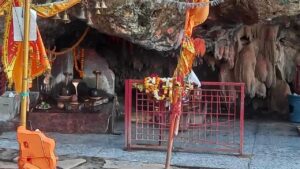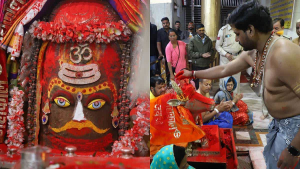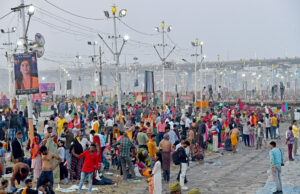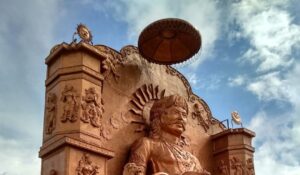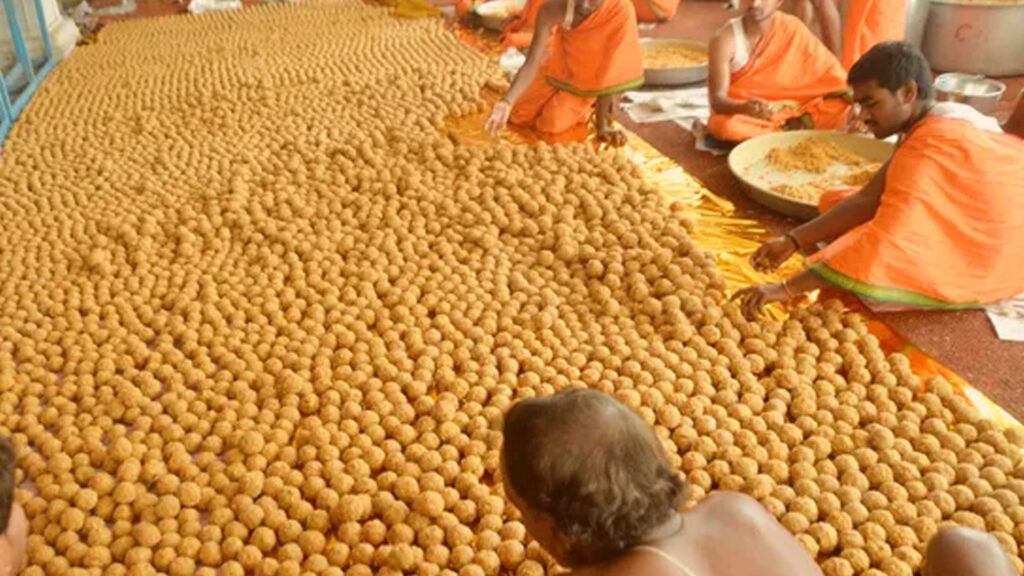
Tirupati Laddoo Controversy: The debate regarding the alleged use of animal fat in the renowned Tirupati laddoos has sparked political turmoil in Andhra Pradesh. Despite this controversy, the sale of these sacred offerings at the Sri Venkateshwara Temple remains strong, with over 60,000 devotees visiting daily. Many pilgrims continue to express their unwavering faith in the laddoo, viewing the uproar as a bygone issue.
The temple administration reported impressive sales figures, with 14 lakh Tirupati laddoos sold over a four-day period. On September 19 alone, 3,59,000 laddoos were sold, followed by 3,17,000 on September 20, 3,67,000 on September 21, and 3,60,000 on September 22. These numbers align with the temple’s average daily sales of 350,000 laddoos, demonstrating the laddoo’s enduring popularity.
For many pilgrims, the controversy has not diminished their faith. One devotee noted, “Our faith is too strong to be shaken,” reflecting a common sentiment among visitors who believe the matter has been resolved. The laddoo continues to be a beloved keepsake for pilgrims, who often purchase large quantities to share with loved ones.
The preparation of the Tirupati laddoo involves simple yet rich ingredients, such as Bengal gram, cow ghee, sugar, cashews, raisins, and almonds. Each day, a substantial 15,000 kilograms of cow ghee is utilized to preserve the laddoos’ unique flavor and texture. The consistency of these ingredients over the years has bolstered devotees’ confidence in the laddoo’s purity.
The controversy erupted when Andhra Pradesh Chief Minister N. Chandrababu Naidu alleged that the ghee used in the laddoo preparation during the previous YSR Congress Party (YSRCP) regime contained animal fat. This claim prompted significant backlash and led the state government to establish a Special Investigation Team (SIT) to investigate the issue.
Former Chief Minister Y.S. Jagan Mohan Reddy, leader of the YSRCP, has vehemently denied these allegations, accusing Naidu and the ruling Telugu Desam Party (TDP) of politicizing religious matters to undermine his party.
In defense of the temple’s practices, Jagan Reddy explained that the tender process for sourcing ingredients, including ghee, occurs biannually. The qualification criteria have remained unchanged for many years, requiring suppliers to present a National Accreditation Board for Testing and Calibration Laboratories (NABL) certificate along with a product quality certificate.
Furthermore, the Tirumala Tirupati Devasthanams (TTD), which oversees the temple, collects and tests samples of ghee before its use. Only those that meet rigorous quality standards are approved for laddoo preparation.
Jagan Reddy has also labeled Naidu as a “pathological and habitual liar,” suggesting that the TDP leader is intentionally inflaming religious tensions for political advantage.
Despite the surrounding political discourse, the consistent sales of laddoos and the steadfast confidence of devotees indicate that faith remains paramount at the Sri Venkateshwara Temple. For countless pilgrims, the Tirupati laddoo symbolizes devotion and a tradition that transcends political strife.
As investigations proceed, it is evident that for devotees, the laddoo controversy has been resolved in their hearts. The temple continues to serve as a sanctuary of worship and tranquility, where faith prevails over political disagreements.

